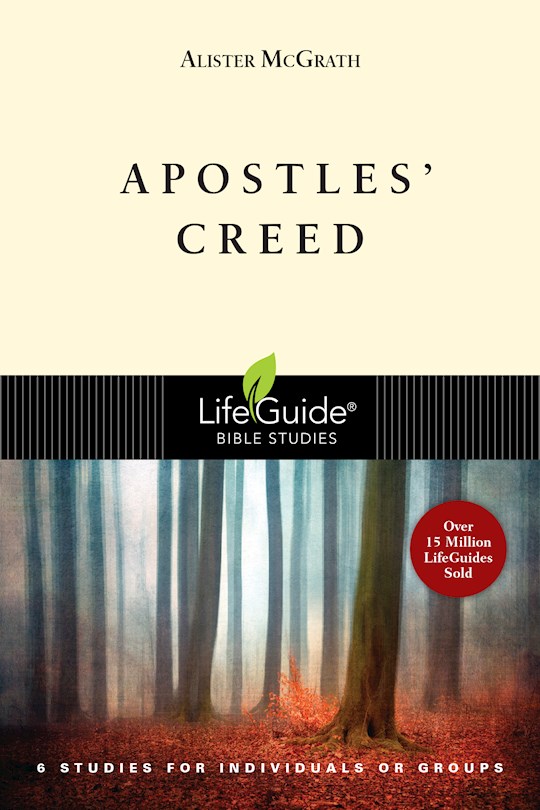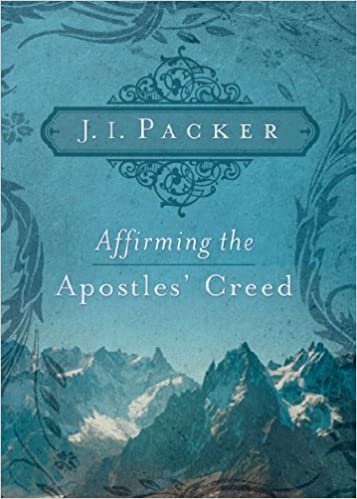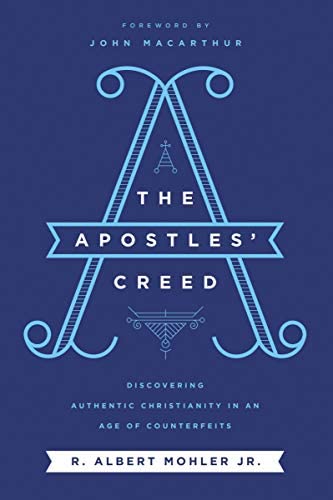Click here to return to Blog Post Intro
The Apostles’ Creed: Together We Believe by Matt Chandler

Separation from God is the hell that Christ experiences. To be clear, Hell is the absence of the presence of God.
For some people, the phrase “He descended to hell” is controversial. This phrase wasn’t included in the earliest form of the Apostles’ Creed but was added by a Roman theologian named Rufinus in A.D. 390. Rufinus interpreted that Jesus went down into the earth and was buried, so Christ—in his humanity—fully experienced judgment for sin on our behalf.
Baptism is our picture of identification with Christ, dying to sin and receiving new life in Him.
Throughout history, many people have died for their beliefs. The resurrection truly makes the Christian faith unique.The difference between Jesus and any guru, prophet, teacher, leader, or hero is that He was the only son of God and didn’t stay dead.
The resurrection of Jesus is not only miraculous but evidence that only He has authority over life and death and the ability to forgive sin. Because Christ isn’t dead, we can be confident that all our sins have been forgiven.
When we affirm the words of the Apostles’ Creed—“He descended to hell; the third day He rose again from the dead”—we gain an eternal perspective.
Apostles’ Creed by Alister McGrath

Jesus Christ suffered and died “so that by his death he might break the power of him who holds the power of death—that is, the devil—and free those who all their lives were held in slavery by their fear of death” (Hebrews 2:14-15).

The Apostles’ Creed: A Guide to the Ancient Catechism by Ben Myers

Several New Testament authors describe Jesus’ death as a descent into the world of the dead:
- Paul in Ephesians 4:8-9, “When he ascended on high, he made captivity itself a captive (after having first) descended into the lower parts of the earth.”
- Peter in 1 Peter 3:18-22, “(He) went and made a proclamation to the spirits in prison (and then went) into heaven and is at the right hand of God.”
- John in John 5:25, “(In Jesus), the dead will hear the voice of the Son of God, and those who hear will live.”

In the death and resurrection of Jesus, death itself was altered. And now, says Athanasius, “We no longer die as those condemned but as those who will arise.”
For the Eastern Orthodox church, the icon of the resurrection portrays a glorified Christ standing over the broken doors of hell. Check out this picture from Moscow –

Affirming the Apostles’ Creed by J. I. Packer

He Descended into Hell
Having tasted death himself, Jesus can support us while we taste it and carry us through the great change to share the life beyond death into which he himself has passed.
Puritan John Preston lay dying when he responded to a question if he feared death, now that it was so close, “No, I shall change my place, but I shall not change my company.”
When the Creed says, “He descended into Hell,” it means that Jesus really died, and that it was from a genuine death, not a simulated one, that he rose. The language of descent is used because Hades is lower in worth and dignity than is life on earth.
Jesus entered Hades, and Scripture tells us briefly what he did there:
- He made Hades into Paradise for the penitent thief (Luke 23:43).
- He perfected spiritus of Old Testament believers (Hebrews 11:40; 12:23).
- He proclaimed to the imprisoned “spirits” who had rebelled (presumably the fallen angels of 2 Peter 2:4, who are also “the sons of God” of Genesis 6:1-4).
Now we can face death knowing that when it comes, we shall not find ourselves alone. He has been there before us, and he will see us through.
The Third Day
Had Jesus not risen from the dead, these four things would be true:
- To quote Paul in 1 Corinthians 15:17, “If Christ has not been raised, your faith is futile, and you are still in your sins.”
- There is no hope of our rising either.
- He is not reigning and will not return.
- Christianity cannot be what the first Christians thought it was—fellowship with a living Lord who is identical with the Jesus of the Gospels. The Jesus of the Gospels can still be your hero, but he cannot be your Savior if he did not rise.
To believe in Jesus Christ as Son of God and living Savior is certainly more than an exercise of reason, but in the face of the evidence (the empty tomb and meetings with the living Jesus), it is the only reasonable thing a person can do.
Jesus’ rising means:
- Jesus is the Son of God (Romans 1:4).
- It vindicated his righteousness (John 16:10).
- It demonstrated victory over death (Acts 2:24).
- It guaranteed the believer’s forgiveness and justification (1 Corinthians 15:17; Romans 4:25).
- It guaranteed his future resurrection too (1 Corinthians 15:18).
- It brings him into the reality of resurrection life now (Romans 6:4).
The Apostles’ Creed: Discovering Authentic Christianity in an Age of Counterfeits by R. Albert Mohler, Jr.

He Descended into Hell
We have to be particularly careful not to go beyond what the Bible reveals about Jesus descending into hades—the Greek word from the New Testament describing hell.
The New Testament Greek also includes the word Gehenna, which is the place of torment. The Bible does not tell us that Jesus went to Gehenna; what it does tell us, boldly, is that Jesus truly died. This phrase of the creed underlines this important fact.
The Third Day He Arose Again from the Dead
As Jesus predicted, “The Son of Man must be delivered into the hands of sinful men and be crucified and on the third day rise” (Luke 24:7).
Jesus Christ rose on the third day! This is the greatest good news in all of human history.
Each of the four biblical Gospels presents a consistent witness to the bodily resurrection of Jesus—the empty tomb, the witnesses, and the appearances of the risen Christ.
In Acts 2:24, Peter boldly proclaimed, “God raised him up, loosing the pangs of death, because it was not possible for him to be held by it.”
According to Romans 4:24-25, the cross and the resurrection represent a unified saving action.
The resurrection of Christ from the dead provides the ground for our salvation since he lives always to make intercession (Hebrews 7:25). The resurrection of Christ from the dead fulfilled all the promises of God. Now Christians can look forward to the end of time when Christ will destroy death forever—an action he began with his resurrection from the dead. The Father has announced to all creation, in heaven and on earth, that Jesus Christ is the risen Lord.

